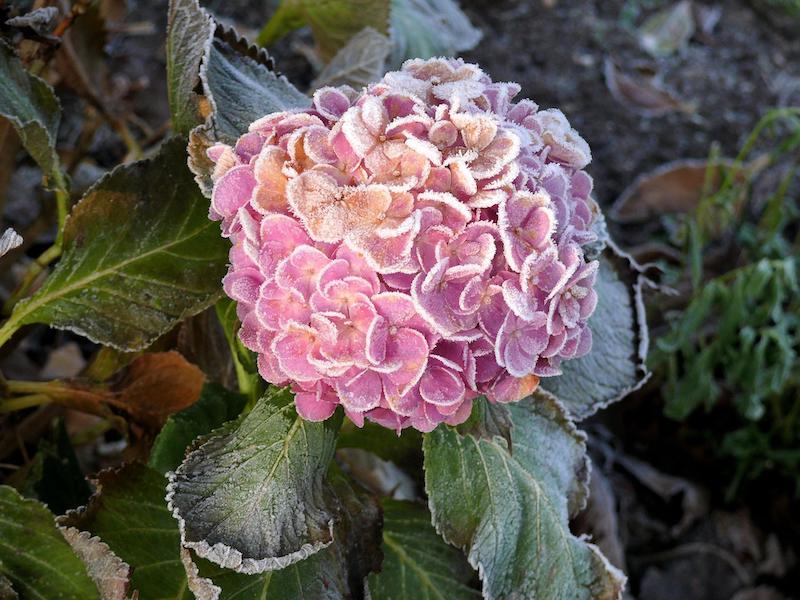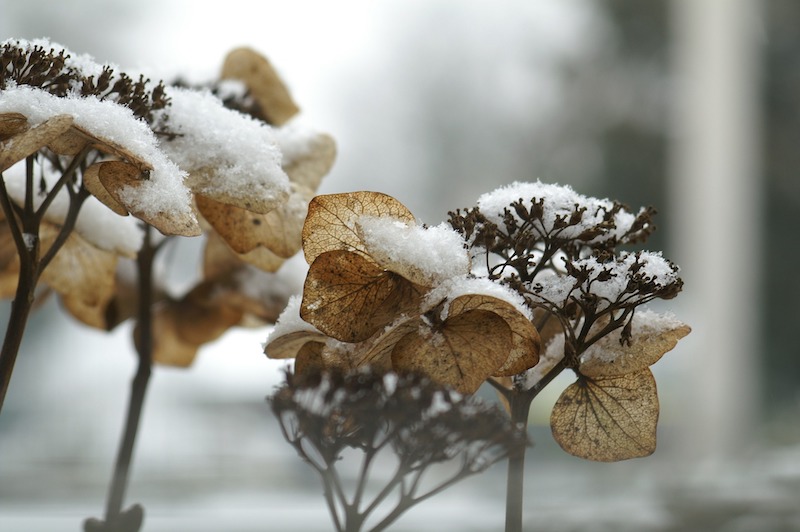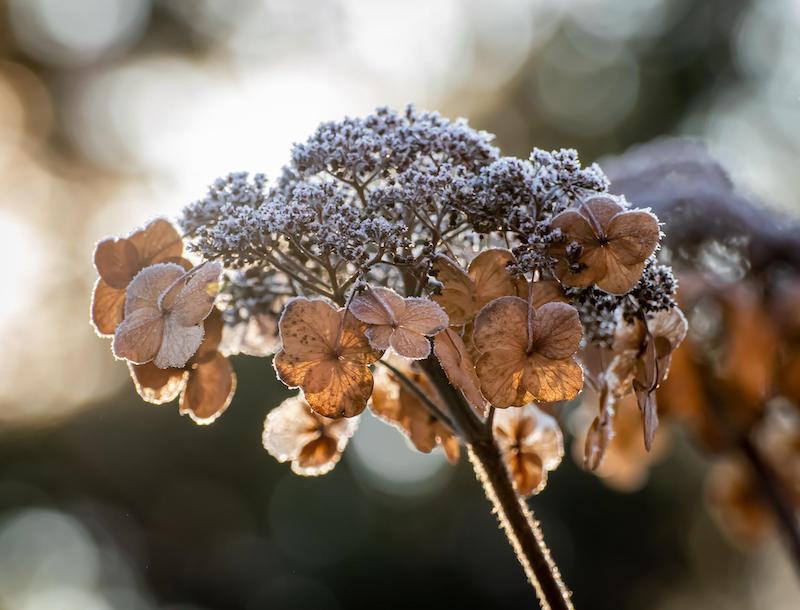Hydrangeas are grown in zones 3-7 as perennials. They are a beautiful, reliable plant that comes back year after year. They can survive very cold temperatures and often require little intervention.

Protecting Hydrangeas in Winter
Hydrangeas are quite hardy, so little needs to be done to protect them during winter. However, some things can be done to give them a little extra support as they head into those cold and dark months. Placing mulch at the base of the hydrangea can offer a bit more protection, insulating the roots over the winter.

Cutting Back Hydrangeas For Winter
Many hydrangeas operate differently when it comes to pruning. A good rule of thumb is to prune for aesthetic purposes and for shaping. The plant does not need to be deadheaded, and it should be kept in mind that buds can emerge on old wood, depending on the hydrangea type. Each variety has its own pruning needs, and pruning at the wrong time could result in lack of flowers the following spring and summer.

Hydrangea Winter Care in Pots
Hydrangeas are hardy, but if left in a pot over winter, it will be much colder than if left in the ground. The roots are much more vulnerable to freeze-thaw cycles if the hydrangea is planted in a pot. Pots can be brought inside during the winter, and then brought back outside in the spring and summer. Consider leaving the pot where it could be covered and insulated by snow, or next to the house where it will receive residual heat.
Watering Hydrangeas in Winter
Hydrangeas should be supplementally watered if no rain or snow has been observed to add moisture. This doesn’t need to happen often, but if a drought is observed, then watering is advised about once a week. Hydrangeas overwinter best when they remain hydrated, so while watering is not necessary, it would promote the best blooms.
Growing Hydrangeas Indoors
Hydrangeas can be brought inside over winter. They may not provide blooms, but they will remain alive. They won’t enter a dormancy period if not left in the cold. Hydrangeas do not need dormancy in order to bloom in the spring and summer.
Steps to Care for Hydrangeas in Winter
Caring for hydrangeas in the winter is relatively straightforward, as they don’t require much intervention beyond a layer of mulch and occasional watering.
Step 1 - Prune hydrangeas only according to varietal instruction, or for aesthetic purposes.
Step 2 - Place a layer of mulch at the base of the plant.
Step 3 - Water about once a week during the winter, if no snow or rain is observed.
 |
Author Chris Link - Published 07-14-2022 |


